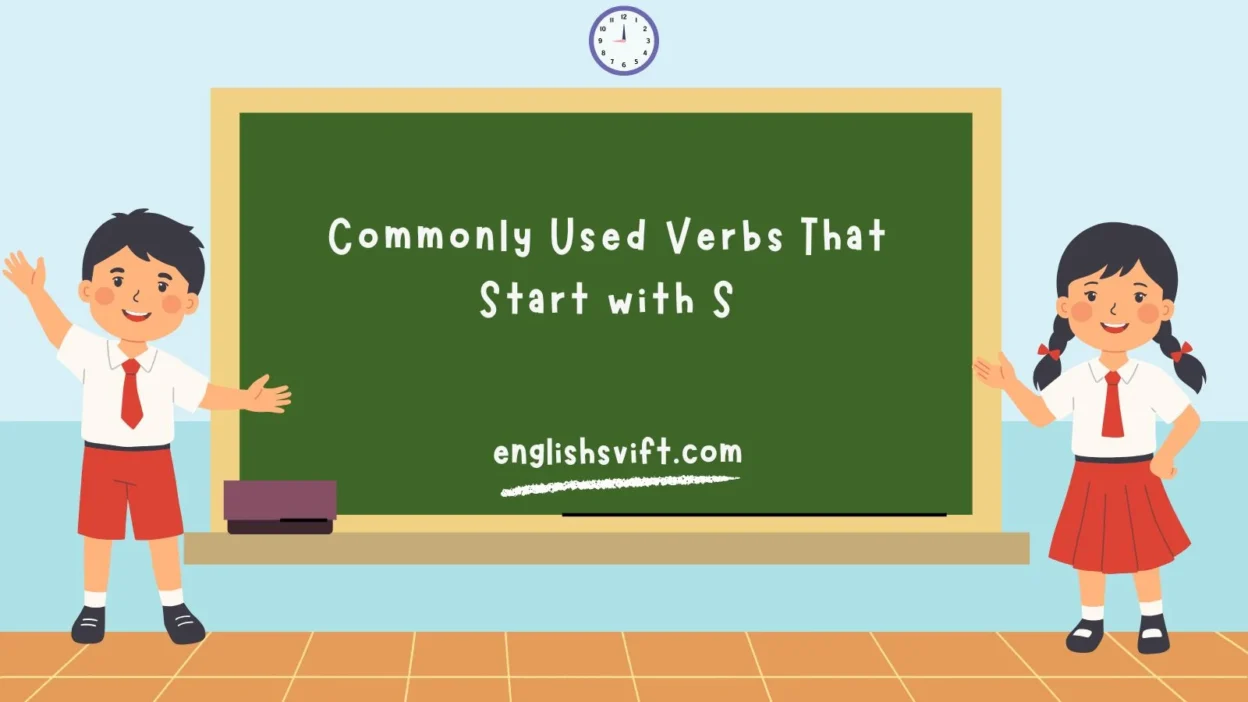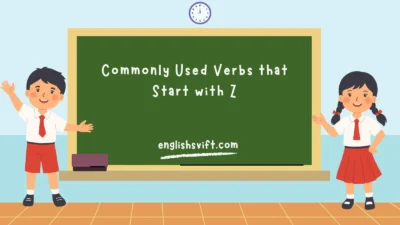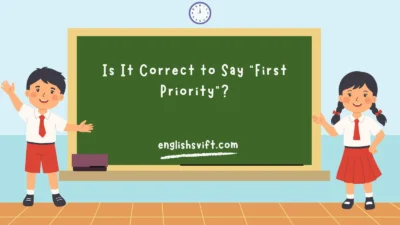If you’ve ever noticed how many everyday sentences begin with verbs that start with “S”, you’re not alone. From simple phrases like “smile at a friend” to more complex actions like “supervise a project”, these verbs shape our daily communication.
The letter S is one of the most powerful starters in the English language, giving us words filled with movement, sound, and expression. In this guide, you’ll discover 300+ commonly used verbs that start with S, complete with meanings, synonyms, grammar notes, and practical examples.
Whether you’re writing essays, polishing professional emails, or simply trying to add flair to your conversations, these verbs will become your go-to toolkit.
Why “S” Verbs Matter in English Writing & Speech
Verbs beginning with S are:
- Common in everyday life: see, say, start, stop.
- Powerful in storytelling: soar, stumble, shiver.
- Formal and academic: substantiate, summarize, standardize.
- Expressive of emotions: savor, sympathize, soothe.
👉 By mastering them, you’ll not only improve fluency but also make your sentences more dynamic and engaging.
Complete List of 300+ Common Verbs That Start with S (With Meanings)
Here’s a master list of verbs starting with S—arranged with meanings and quick examples for easier understanding.
| Verb | Meaning | Example Sentence | Synonyms |
| Say | To speak words | She said she was tired. | utter, state, declare |
| See | To perceive with the eyes | I see a bird outside. | view, notice, observe |
| Start | To begin something | They started the meeting late. | commence, initiate, launch |
| Stop | To bring to an end | Please stop shouting. | cease, halt, quit |
| Shine | To emit light | The sun shines brightly. | glow, gleam, sparkle |
| Smile | To form a cheerful expression | He smiled at his friend. | grin, beam |
| Study | To learn about a subject | She studies medicine. | review, analyze |
| Support | To help or assist | Parents support their children. | aid, back, assist |
| Suggest | To recommend or propose | I suggest taking a break. | advise, recommend |
| Survive | To continue to live or exist | The plant survived the drought. | endure, persist |
Action-Packed “S” Verbs for Daily Conversations
When chatting casually, S verbs make your language natural and lively.
| Verb | Usage in Conversations | Example |
| Shout | Express anger or excitement loudly | Don’t shout in the library. |
| Show | To demonstrate or present | Let me show you the picture. |
| Share | To give a part of something | I’ll share my lunch with you. |
| Send | To deliver a message/item | Please send me the file. |
| Stay | To remain in a place | Let’s stay home tonight. |
💡 Tip: Replace bland verbs (talk, do) with sharper ones (shout, show) to add clarity and emotion.
Verbs That Express Emotions & Feelings Starting with S
Emotions often find their voice through verbs.
| Verb | Emotion Expressed | Example |
| Savor | Enjoy deeply | She savored the taste of chocolate. |
| Sympathize | Share someone’s feelings | I sympathize with your loss. |
| Soothe | Calm or comfort | Music soothed his anxiety. |
| Shiver | Reaction to fear/cold | She shivered in the cold night. |
| Sulk | Show silent resentment | He sulked after losing the game. |
✨ Writers often prefer these verbs in poetry, storytelling, and emotional dialogues.
Strong Verbs for Storytelling & Creative Writing
Creative writing thrives on powerful action verbs.
| Verb | Storytelling Impact | Example |
| Soar | Show upward movement | The eagle soared across the sky. |
| Stumble | Suggest clumsiness | He stumbled over a stone. |
| Sparkle | Add vibrancy | Her eyes sparkled with excitement. |
| Smash | Convey destruction | The vase smashed into pieces. |
| Sneak | Express stealth | The thief sneaked into the house. |
👉 Using these verbs paints vivid mental pictures for your reader.
Common “S” Verbs in Business, Work, and Professional Settings
Business communication loves precise, professional verbs.
| Verb | Meaning in Workplace | Example |
| Supervise | Oversee tasks or people | She supervises the new interns. |
| Submit | Hand in documents | Please submit your assignment. |
| Schedule | Fix a date/time | Let’s schedule a meeting for Friday. |
| Support | Provide assistance | Our company supports innovation. |
| Standardize | Make uniform | The firm standardized its policies. |
💼 These verbs add professional polish to emails and reports.
Academic & Assignment-Friendly Verbs Beginning with S
Students and researchers often rely on academic “S” verbs.
| Verb | Academic Use | Example |
| Study | To examine deeply | The study explored climate change. |
| Summarize | Condense information | Summarize the article in 200 words. |
| Substantiate | Provide evidence | He substantiated his claims with data. |
| Suggest | Propose an idea | The research suggests a new approach. |
| Survey | Examine a group/sample | The survey included 500 participants. |
📚 These verbs boost credibility in essays, papers, and presentations.
Verbs That Describe Movement and Physical Actions
Some of the most dynamic “S” verbs describe motion.
| Verb | Action | Example |
| Slide | Move smoothly | Kids slide down the hill. |
| Sprint | Run quickly | He sprinted towards the finish line. |
| Stroll | Walk casually | They strolled along the beach. |
| Swing | Move back and forth | The child swings in the park. |
| Skid | Slip while moving | The car skidded on ice. |
👉 Perfect for storytelling, sports commentary, and everyday life.
Sensory Verbs: Seeing, Smelling, and Sensing with S
Our senses are tied to some of the most expressive verbs in English.
| Verb | Sense | Example | Synonyms |
| See | Vision | I see clouds forming. | observe, view, notice |
| Stare | Vision (intense) | She stared at the painting. | gaze, look |
| Smell | Olfaction | The flowers smell sweet. | sniff, scent |
| Savor | Taste | He savored the flavor of coffee. | relish, enjoy |
| Sense | Intuition | I sensed something was wrong. | perceive, detect |
✨ Writers often rely on sensory verbs to make scenes vivid and immersive.
Verbs for Social Interaction and Communication
When we connect with people, “S” verbs come alive.
| Verb | Social Use | Example |
| Speak | General communication | She speaks three languages. |
| Suggest | Offering an idea | I suggest we leave early. |
| Support | Showing help | Friends support each other. |
| Socialize | Mix with others | They love to socialize at parties. |
| Salute | Respectful greeting | Soldiers saluted their officer. |
👉 These verbs make conversations more engaging, polite, and clear.
Polite & Formal “S” Verbs for Professional Emails
Polished writing requires the right tone. Here are verbs that work well in business emails:
| Verb | Polite Use | Example |
| Submit | Formal action | Please submit your report by Friday. |
| Suggest | Professional proposal | I suggest we review this plan. |
| Schedule | Arranging | Let’s schedule a follow-up call. |
| Support | Offering assistance | I’d be happy to support your team. |
| Share | Providing information | I’d like to share some updates. |
💡 Tip: Using formal verbs prevents emails from sounding too casual.
Verbs That Express Conflict, Fear, and Negative Emotions
Not all verbs are cheerful—some describe tension, fear, and negativity.
| Verb | Negative Emotion | Example |
| Shout | Anger | He shouted at the players. |
| Sulk | Silent resentment | She sulked in the corner. |
| Scare | Instill fear | The thunder scared the kids. |
| Sabotage | Deliberately damage | Rivals sabotaged the project. |
| Shame | Embarrass | He was shamed for cheating. |
👉 These verbs add drama and realism to stories and conversations.
Happy, Positive, and Motivating Verbs That Start with S
Balance the negativity with uplifting verbs.
| Verb | Positive Meaning | Example |
| Smile | Express happiness | She smiled at the baby. |
| Sparkle | Show brightness | His eyes sparkled with joy. |
| Support | Encourage someone | Parents support their kids. |
| Soothe | Calm others | Music soothes the soul. |
| Shine | Stand out | She shines in mathematics. |
💡 Writers often use these verbs in motivational speeches or positive storytelling.
Grammar Tips: How to Conjugate “S” Verbs in Sentences
Conjugation follows general English verb rules. Let’s look at examples in present, past, and participle forms:
| Verb | Present | Past | Past Participle |
| Say | say/says | said | said |
| See | see/sees | saw | seen |
| Study | study/studies | studied | studied |
| Shine | shine/shines | shone | shone |
| Swim | swim/swims | swam | swum |
💡 Notice how irregular verbs (see → saw → seen) don’t follow the -ed pattern.
Synonyms & Antonyms for Common “S” Verbs
Synonyms expand vocabulary, while antonyms help express contrasting ideas.
| Verb | Synonyms | Antonyms |
| Smile | grin, beam | frown, scowl |
| Start | begin, commence | stop, finish |
| Support | aid, assist | oppose, hinder |
| Soothe | comfort, calm | irritate, upset |
| Shine | glow, gleam | dim, darken |
👉 Using synonyms avoids repetition and makes writing more colorful.
Verbs That Start with S in Idioms & Popular Phrases
English idioms often feature “S” verbs:
- “See eye to eye” → To agree.
- “Say the word” → To give a signal.
- “Stop at nothing” → To be determined.
- “Stand one’s ground” → To defend a position.
- “Spill the beans” → To reveal a secret.
📌 These idioms add flair and cultural depth to communication.
Fun Verbs That Add Flair to Creative Essays & Articles
Some verbs instantly energize your writing.
| Verb | Creative Use | Example |
| Scribble | Quick messy writing | He scribbled notes in a hurry. |
| Sketch | Draw roughly | She sketched a design idea. |
| Strum | Play guitar casually | He strummed his guitar softly. |
| Stumble | Describe imperfection | She stumbled through her speech. |
| Spark | Create interest | The story sparked curiosity. |
💡 Use these in essays, blogs, and creative pieces for extra impact.
Difference Between Strong vs Weak “S” Verbs
- Strong Verbs: Stand alone powerfully (smash, soar, sprint).
- Weak Verbs: Need adverbs to gain strength (say loudly instead of shout).
| Strong Verb | Weak Alternative |
| Shout | Say loudly |
| Sprint | Run quickly |
| Smash | Break forcefully |
| Sparkle | Shine brightly |
| Sneak | Walk quietly |
👉 Strong verbs are preferred in impactful writing.
Most Commonly Misused “S” Verbs and Their Correct Usage
| Verb | Common Mistake | Correct Usage |
| Say | “He said me” | Correct: “He said to me” |
| Suggest | “She suggested me to go” | Correct: “She suggested that I go” |
| Sit | Confused with set | Sit = position yourself, Set = place something |
| Spend | “I spend my homework” | Correct: “I spend time on homework” |
| Study | “I study about math” | Correct: “I study math” |
👉 These are frequent errors learners should avoid.
Tables of Regular vs Irregular “S” Verbs
| Regular Verbs | Irregular Verbs |
| Smile → smiled → smiled | See → saw → seen |
| Save → saved → saved | Sing → sang → sung |
| Start → started → started | Swim → swam → swum |
| Support → supported → supported | Shine → shone → shone |
| Suggest → suggested → suggested | Say → said → said |
📌 Learning this table reduces grammar mistakes.
Advanced Vocabulary: Rare & Unique Verbs That Start with S
Not all verbs are everyday words—some are rare but powerful.
| Verb | Meaning | Example |
| Sojourn | Stay temporarily | He sojourned in Paris for a year. |
| Substantiate | Prove with evidence | She substantiated her claim in court. |
| Surmise | Guess without evidence | I surmise he’s late due to traffic. |
| Sequester | Isolate | The jury was sequestered during trial. |
| Satiate | Fully satisfy | The meal satiated their hunger. |
✨ Great for academic writing, debates, or advanced essays.
Examples of “S” Verbs in Famous Quotes and Literature
- Shakespeare: “Some are born great, some achieve greatness, and some have greatness thrust upon them.” → achieve, born, thrust (action verbs with S)
- Schubert’s songs: Often use verbs like sing, soothe, serenade.
- Everyday classics: “Stand and deliver!” (used historically in robbery dramas).
📌 Literature often makes simple verbs timeless.
Writing Exercises: Practice with Verbs Starting with S
- Write 5 sentences using smile, shine, stop, say, study.
- Rewrite: “He said loudly” → “He shouted.”
- Describe your morning using 10 S verbs.
- Create a mini-story using: soar, stumble, share, support, survive.
Final Thoughts on Using “S” Verbs Effectively
Verbs that start with S are among the most versatile in English. They help:
- Add clarity in communication.
- Build emotions and actions in stories.
- Strengthen academic and professional writing.
👉 Whether you’re crafting essays, speaking with friends, or writing creative content, these verbs will supercharge your sentences.
FAQs
Q1: What are the most common verbs that start with S?
A: Say, see, start, stop, smile, shine, study, support, suggest, survive.
Q2: How many verbs start with S in English?
A: Over 300+ commonly used verbs, with many more rare/academic ones.
Q3: Are verbs like “see” and “say” irregular?
A: Yes, both are irregular verbs (see → saw → seen, say → said → said).
Q4: Which S verbs are useful in business English?
A: Submit, schedule, supervise, support, summarize, standardize.
Q5: How can I practice “S” verbs?
A: Through daily conversation, writing short stories, or making synonym tables to expand vocabulary.
Conclusion
Mastering verbs that start with S is like unlocking a secret tool for fluent, powerful English. They range from simple daily verbs (say, see, smile) to advanced academic words (substantiate, standardize). By learning their meanings, synonyms, antonyms, and grammar patterns, you’ll communicate with more confidence, flair, and precision.



